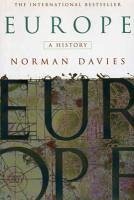
The Normans in European history (eBook, ePUB)
Versandkostenfrei!
Sofort per Download lieferbar
1,99 €
inkl. MwSt.
Weitere Ausgaben:

PAYBACK Punkte
1 °P sammeln!
Now the history of Normandy reflects this twofold impression of the traveller: it faces toward England and the sea, but it belongs to France and the land. Open to the outer world by the great valley of the Seine and the bays and inlets of its long coast-line, Normandy was never drawn to the sea in the same degree as its neighbor Brittany, nor isolated in any such measure from the life of the Continent. Where the shore is low, meadow and field run to the water's edge; where it is high, its line is relatively little broken, so that the streams generally rush to the sea down short, steep valleys,...
Now the history of Normandy reflects this twofold impression of the traveller: it faces toward England and the sea, but it belongs to France and the land. Open to the outer world by the great valley of the Seine and the bays and inlets of its long coast-line, Normandy was never drawn to the sea in the same degree as its neighbor Brittany, nor isolated in any such measure from the life of the Continent. Where the shore is low, meadow and field run to the water's edge; where it is high, its line is relatively little broken, so that the streams generally rush to the sea down short, steep valleys, up which wheeze the trains which connect the little seaside ports and watering-places with the modern world within. In spite of the trade of its rivers and its ports, in spite of the growth of industry along its streams, Normandy is still primarily an agricultural country, rooted deep in the rich soil of an ancient past, a country of horses and cattle, of butter and cheese and cider and the kindly fruits of the earth; and the continuity of its history rests upon the land itself. "Behind the shore and even upon it," says Vidal de la Blache, "the ancient cumulative force of the interior has reacted against the sea. There an old and rich civilization has subsisted in its entirety, founded on the soil, through whose power have resisted and endured the speech, the traditions, and the peoples of ancient times." Conquered and colonized by the sea-rovers of the north, the land of Normandy was able to absorb its conquerors into the law, the language, the religion, and the culture of France, where, as Sorel says, their descendants now preserve "their attachment to their native soil, the love of their ancestors, the respect for the ruins of the past, and the indestructible veneration for its tombs."
Dieser Download kann aus rechtlichen Gründen nur mit Rechnungsadresse in A, B, BG, CY, CZ, D, DK, EW, E, FIN, F, GR, HR, H, IRL, I, LT, L, LR, M, NL, PL, P, R, S, SLO, SK ausgeliefert werden.













